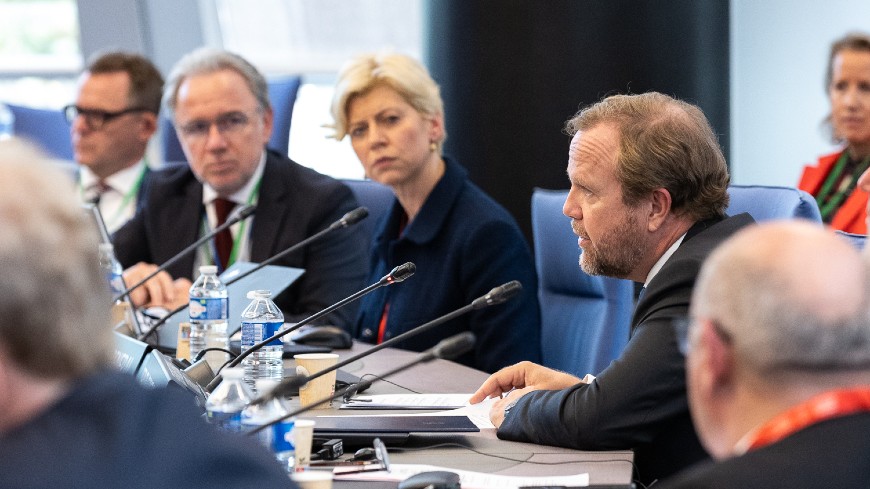The renewal of education's civic mission, education in times of emergency and crisis, and harnessing the potential of digital transformation in education are the main themes of the 26th Council of Europe Standing Conference of Ministers of Education held in Strasbourg on September 28-29.
The conference brings together Ministers of education and high-level officials from 43 member states of the Council of Europe who are expected to launch the new Council of Europe Education Strategy 2030 and adopt five resolutions reaffirming the critical role of education in promoting democracy, human rights, and the rule of law; recognising the need for decisive action to address global challenges; strengthening the Council of Europe's education implementation mechanisms, and focusing on the democratic future for all learners.
In his opening remarks, Deputy Secretary General Bjørn Berge emphasised that more needs to be done to ensure that young people are better equipped with both an understanding of democracy, what it means to live in such a democracy, and what is means to be a citizen in a modern democracy. “We should start by focusing on how we can support the participation of young persons in democratic life and decision-making. Where they can experience pluralism, inclusion, non-discrimination, transparency and accountability,” he said.
Anda Čakša, Minister for Education and Science of Latvia that currently holds the Presidency of the Committee of Ministers of the Council of Europe, in her keynote speech has sought to position education within broader realities – the place of education in the era of digitalisation, in the work towards the UN Sustainable Development Goal No.4 that focuses on inclusive and equitable quality education opportunities for all, as well as the education in times of war.
“Russia’s unjustified and unprovoked war of aggression against Ukraine has affected more than 90% of school age children of Ukraine and has disrupted the European education landscape as a whole,” she said.
To address existing and arising tensions, “a stronger European-level binding instrument is needed to warrant education’s unique role in forging the culture of democracy”, the Minister said. “I therefore strongly encourage the launch of a European Space for Citizenship Education in view of a new Council of Europe’s framework convention to promote education for democracy in schools, higher education institutions and communities, and provide space for cooperation between Member States committed to democratic values. “
The development of a new framework convention to create a "European Space for Citizenship Education” is one of the proposals discussed at the Council of Europe conference.
“At the backdrop of the realities the Europe which is represented today by the Council of Europe, an entity of common values and political orientation, should be guided by an ambitious vision of education transformation, rigorous, human-rights-based standards, strong cross-European cooperation and active engagement in the global initiatives and partnerships,” Čakša stressed.
Other items on the proposals, are a pilot toolbox for ensuring education rights in emergencies and the launch of the European Year of Digital Citizenship Education in 2025.
The conference seeks to help to implement the conclusions of the 4th Summit of Heads of State and Government, the Council of Europe 2030 Strategy, the Secretary General's Strategic Framework, and the United Nations Agenda 2030 for Sustainable Development Goals.


